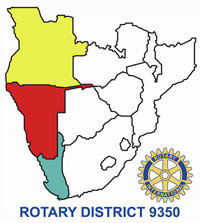I miss a handful of things about living in the United States
– sleeping in a comfortable bed, topping favorite foods with yellow mustard,
and hearing “y’all” sprinkled into conversations, to name a few. After today, I
can add a new bullet to my list: convenience.
I know, I know. That’s a terribly American thing to say.
Today’s experience battling with South African systems had
me crying (almost literally) for the convenience I had taken for granted at
home. After telling the story several times, I noticed a few underlying themes,
one being the unique characteristics of South Africa’s banking systems, but
another being the complications of a “rootless” life.
What happened, you ask? I attempted to book a one-night stay
at Aquila, a nearby game reserve. Seems easy enough. Trust me, though, there are all sorts
of setbacks embedded.
 |
From the start, the reservation itself proved to be
inconvenient. It required me to print a form to complete with my banking
details, which then needed to be submitted via email. Because I’d be close to a
printer and a scanner, this wouldn’t have proven to be a problem in my home
sweet home. When such a simple process requires downloading the document at
home, saving it to a flash drive, walking to PostNet, printing the form,
filling it out, scanning the form, saving it to the flash drive, and walking
back home to submit via email, the reservation becomes a bit more complicated.
Just as I crossed the reservation off my to-do list and
moved on to the car rental, I received an email that the transaction had been
declined. Before attending to the email, I wrapped up my conversation with the
car rental company. It, too, had been declined. After confirming that I had
submitted the accurate details, it became apparent that there was some sort of
account error occurring. The solution: call Standard Bank.
False. Calling the bank’s customer service line –
successfully navigating the automated options, then sorting the collision of clashing
accents – landed me at a conversation with a friendly representative who kindly
informed me that I must visit my local branch to sort out the issue. Again, no
big deal if you have a car, or even if you walk past a branch often. Today,
however, this meant a one-mile walk to the closest branch on Long Street.
The issue was quickly sorted. It seemed that an anti-theft
procedure had been catalyzed by my attempted purchase(s), and verifying my
identity with my bank card, passport, and ATM PIN sent me on my way with a
smile on my face. I made a couple of small purchases on the way back just to
make sure the card was functioning, and I was anxious to finally settle my
quest.
I called the companies again, asking them to give it another
try. Of course, the payment was declined… again. A glance at my watch reminded
me that I’d have to wait until tomorrow to return to the bank, as it was
closing at 3:30 PM.
This realization spiraled into a full meltdown of
frustration, and against no one in particular. I was aggravated by the
inconvenience of the chase created by my lack of transportation, which was no
one’s fault but my own. I’ve resisted renting or buying a car, mostly based on
liability reasoning. Do I really want to
own something? Do I really want to take on the risk of renting a car? Do I
really need transportation when I have almost everything I need right here? Such
a commitment seemed too permanent, too rooted for my liking.
As for the banking system, I was frustrated that Standard
Bank was intercepting my efforts to spend my money, but the fact of the matter
is that anti-theft mechanisms like the one impeding my payment are there to
protect against others from spending
my money. Compared to my bank in the US, my bank is South Africa is incredibly
thorough in its anti-theft protection.
 |
| Successful anti-theft mechanisms! http://sustainability.standardbank.com/economic-performance/ secure-banking/combating-fraud-and-corruption/ |
For example, I set maximum amounts of withdrawal and payment
from the account at the time the account was set up. Additionally, I receive a
text message alert immediately after any transaction, whether at an ATM or at a
point of sale. There are always notifications, reminders, and educational materials about common theft tricks on Standard Bank websites, ATM screens, and other correspondence. I’m guessing the red flags in today’s saga were the repeated
attempts of transaction, the location of the transactions (outside Cape Town,
which is unlike my habits to date), and the volume of the transactions (again,
unlike my habits).
I’m left waiting until tomorrow to walk to the bank branch
and try again, but my rational self is doing its best to remind my reactive
self to calm down and be thankful. For good weather to walk in, for coffee
shops and familiar faces along the way, for systems that keep my funds secure…
and for the glass of South African red wine that reminded me to slow down and
count my blessings.





